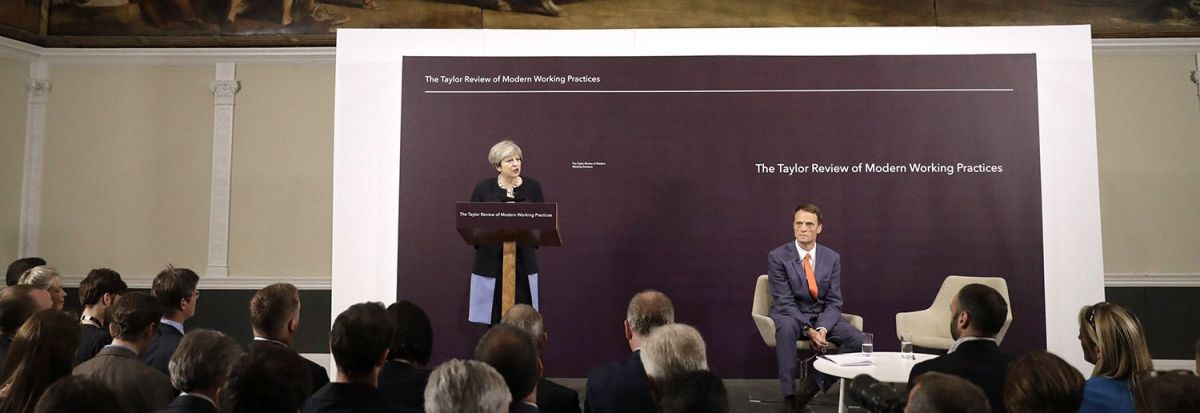
The Taylor review is a chance for the PM to make good on her promises of reform
Theresa May’s speech at Davos last week promised that hers was a government ‘embarked on an ambitious programme of economic and social reform’. Next week she has a chance to bring that pledge to life, when the Government responds to Matthew Taylor’s review of ‘modern working practices’ (at least according to the man himself).
There’s a lot of ground to make up. A u-turn on proposals to put workers on boards, an industrial strategy with little to say for workers in most sectors of the economy, and the continuation of austerity suggest a government with little appetite to match the reality to the rhetoric.
But there are some moves the government could make that might restore a little faith in Theresa May’s reforming project.
Ending the undercutter’s charter
Matthew Taylor’s boldest recommendation was to finally put an end to a loophole in the law that allows agency workers to be paid less than the regular workforce, despite doing exactly the same job. The loophole (known as the Swedish derogation) is a license for those who want to undercut decent wages. Taylor was clear that it should go, and the Government should be too.
Cracking down on false self-employment
As the collapse of Carillion has showed, bogus self-employment creates major risks for workers, with many construction workers left without the any redundancy protection. The November Budget promised a review of employment status. But the Government could be much clearer that the aim of this review will be to crack down on the employers cheating workers out of their rights – not to give in to the special pleading of gig economy companies about why they can’t pay their workers a Minimum Wage.
A ban on unfair Zero Hours Contracts
The Taylor review proposals on zero hours contracts (ZHCs) were weak. A right to request a regular contract after a year on zero hours would do next to nothing for those faced with constant shift cancellations, and little power to act against bad bosses. In December we published research showing that over half of those on ZHCs had had shifts cancelled with less than 24 hours notice.
If Theresa May was looking for a policy to show she was really serious about businesses ‘recognising their obligations and duties to their employees’ as she put it at Davos, a ban on unfair ZHCs would be a good place to start.
Enforcing the rights we have
The best way to protect rights at work is to join a union. The Taylor review recognised that there are ‘many positive examples of the role trade unions can play in good employment relations’; Government could take that one step further and allow unions to access workplaces where workers don’t currently have their support.
But there’s a role for the law too. Taylor set out sensible proposals around giving all workers a written statement of employment particulars to help them understand their rights, enabling HMRC to enforce holiday and sick pay, allowing the Employment Agency Standards Inspectorate (or EASI) to better enforce agency workers’ rights, and beefing up penalties on employers who repeatedly flout rules. These aren’t game changers, but they could help move the dial in the direction of workers, and shouldn’t be lost.
These proposals are about something far more important than whether Theresa May’s political rhetoric stands up to scrutiny; they’re about giving workers the decent rights and protection they deserve. The campaign for great jobs for everyone doesn’t begin or end with the Taylor review. But next week does offer the opportunity for Government to do the right thing – and Theresa May has good reason to take it.
Stay Updated
Want to hear about our latest news and blogs?
Sign up now to get it straight to your inbox
